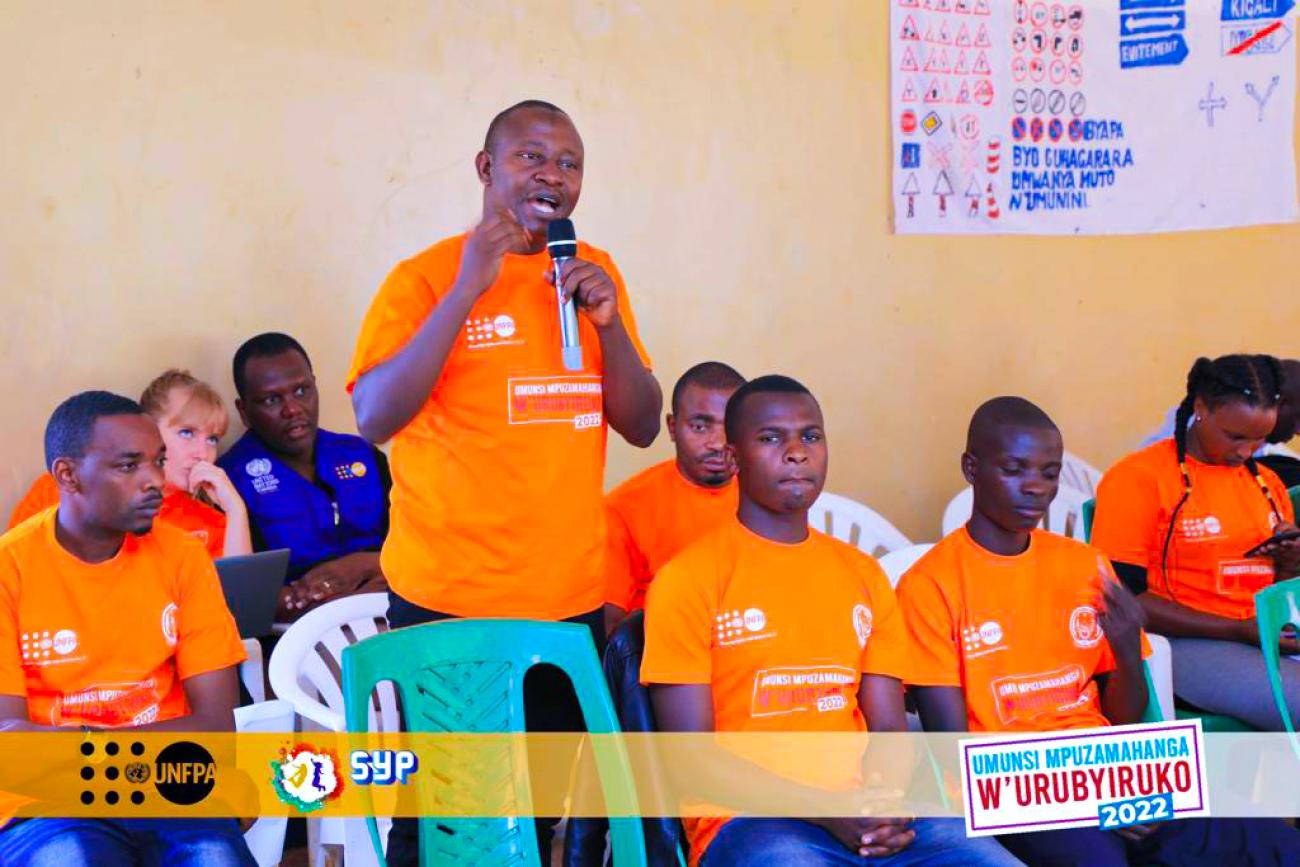TRANSFORMING PARENT-ADOLESCENT COMMUNICATION: FROM A TABOO TO OPEN DIALOGUE ON SRH.
“When it comes to Sexual and Reproductive Health and Rights, there is a big intergenerational gap: from different cultural norms, barriers to youth-friendly SRHR services, to a missing communication within different generations on SRHR. When we foster successful and equitable intergenerational relations and partnerships, we ensure Leaving no one behind.” Said Therese Karugwiza, UNFPA Adolescent and Youth Team Leader.
This was reiterated by Nishyirembere Xaverine, a parent in Nyamasheke District. She recalls how she never had the right information on SRH because it was never discussed in her family or in the community, as some parents didn’t think it was a necessity to have the conversation with their children, while others labelled it a taboo. As someone who has, over the years, gained from the training and workshops on the subject, she lauded how the conversations with her children and other young people in her community gave her an opportunity to dispel the myths and misinformation they had about SRH.
“I encourage all parents to integrate constructive talks about SRH with their children. It could help reduce some of the issues our young people are facing today, namely teenage pregnancies, HIV transmission, GBV, and other harmful practices.” Urged Xaverine.
She shared her story at the dialogue that was organized by UNFPA in collaboration with the National Youth Council and local supportive structures to observe the 2022 International Day of Youth. Under the theme; “Intergenerational Solidarity: Creating a World for All Ages”, the dialogue between adults and young people built on the already recognizable progress made towards enhancing open communication on SRH. What was evidently obvious was the desire for both generations to explore ways to continue fostering a healthy and honest parent-adolescent relationship. Transforming parent-adolescent communication and increasing open dialogue requires bold commitments and action across all generations and from all key players. It’s the basis upon which we leverage our solidarity towards creating a world where our young people are able to make informed decisions.



